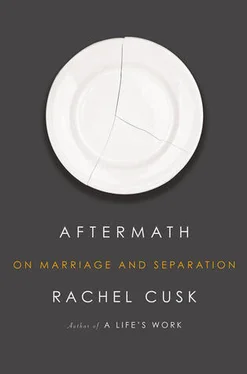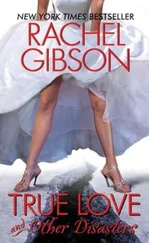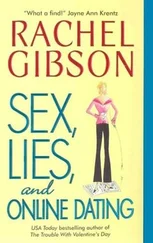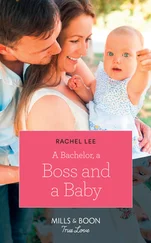I meet my oldest friend — J — for a drink. The children are with their father: I have begun to think that in these periods alone I ought to socialise. I see it as a kind of duty arising out of a vast and possibly terminal neglect, for I have no sense of a future: when I go out to see my friends it is in the service of an illusion. I am trying to pretend that nothing has happened, that nothing has changed, like the orchestra still playing while the Titanic sinks.
But it’s a bad day, the day on which I meet J. Things are difficult; it’s hard to talk about anything else. I can talk to J without anxiety. She knows my life and I know hers: our talk is the talk of episodes; the story itself never needs to be explained. All the same I feel guilty. The drama of my life dominates, uses up the fuel of conversation like an ugly army tank guzzling petrol. This is not equality. I’m sorry, I say, I’m sorry. I’m just so tired. I admit to J that I find it almost intolerable when the children are away. I admit that the night before I lay awake until it was light again and I could get up. I admit that I often spend these vigils in tears.
J leans across the table, grips my hand. Don’t ever do that again, she says. Call me. I don’t care what time of night it is, but don’t ever cry on your own again. Call me instead.
My daughter’s friendship with S has been augmented by her friendship with P. The three of them make a little giggling murmuring organism, their heads together. S’s gadgets are sidelined to a degree in this more complex social structure. The blue light can’t encompass three: there’s always one who’s out of it, who can’t quite see. The entrancing properties of the screen fail to mesmerise them. It strikes me that it is like love, a trance of two that is broken by a third.
Yet the new structure of three is more boisterous, noisier, happier on the surface. I quite like P. She has some of the traits of S — crisps and nail varnish — but shares similarities with my daughter too. She is more loquacious than either of them; she chatters away, her face bright and smiling. The three of them are always together. When one goes to another’s house, the third has to come along too. I am pleased for my daughter, pleased that she’s found friends, though in my heart I’m disappointed. Privately I feel they’re not good enough for her. Her distinct qualities, the things I know her by, don’t feature much in this new social world. Who is she without those qualities? I’m not quite sure. She has taken on the interests and opinions of S and P but she doesn’t seem to have rubbed off on them in quite the same way. Her old friendship with H was a relationship of greater equality, of mutual influence, of qualities shared. They were mingled together, my daughter and H, in a way that reflected well on both of them. Yet that friendship has mysteriously come to an end.
Not long after the arrival of P, another girl, D, joins the group. Now they are four, a family. D is much more to my tastes. She is observant, polite, interesting. She has a discipline about her that I like, an outward-looking beady kind of attentiveness that seems respectful of life. D does not gaze at screens. Her fingernails are unvarnished. I tell my daughter that I like her. I want to show my approval, and D has given me the opportunity.
Yes, my daughter says coolly, she’s nice.
I ask my children what their father feeds them. Takeaways, they say. Pizza. Chicken curry from the supermarket. The tree is dead for him too, then. He was once an extravagant cook, a person who made pastry and boeuf bourguignon, who made his own mincemeat at Christmas, who made little parcels of ravioli and crimped them all around the edges. Where has it gone, that food? And where did it come from, if not from him?
I go to bed hungry and when I wake I feel a degree safer. The hunted creature, hiding, tries to make itself small. The less of me there is, the less likely it is that the arrow will find me. I cook my daughters their supper but I can’t eat with them: I fear that if I do I’ll forget, come out of my hiding place, expose myself to danger. I fear something terrible will happen. Increasingly, to eat seems to be to open the body: the fight-or-flight responses are disabled. It is impossible to eat and stay vigilant. Sometimes, over supper, my daughters argue and upset themselves. If I, too, were eating I might get angry with them. As it is, I spring to their aid. One Sunday evening, when I am expecting them back, the phone rings. I have made a chocolate cake for their return: it stands on a plate in the kitchen, beautifully iced. The phone call is to tell me that my daughter has had an accident at her grandparents’ house, where they were staying the weekend: she is on her way to casualty, has a gash in her leg that will need stitches, so they won’t be back until late. There is nothing I can do and so I stand in the kitchen, waiting. I look at the cake on its plate. It strikes me that while I was making it, my daughter was slipping on the wet path at the back of her grandparents’ house and opening her knee from one side to the other on an edging stone. She returns with six stitches, and a scar that makes my heart jump into my mouth. I saw my own bone, she says. She eats a piece of cake, a small one: the shock has taken away her appetite. It’s nice, she says, resting her head against my arm. Aren’t you having any?
Days and nights of hunger, white and abstract, hunger and the feeling of excitement that is in fact its opposite, dread: I wonder whether the dying get caught up in something of this black romance, whether the courtship of death likewise feels for an instant like thrilling life. Sometimes, looking at my daughters, I remember that once I was pregnant with them, and the memory is too strange to tolerate for long. My body is far away now from that thickening, motionless state, is drifting and fading toward a blank vision of its own autonomy.
I sit and watch a war documentary with my daughters. We watch the old black-and-white footage of men coming across the Channel waters in their strange snub-nosed boats. We see them discharged on the beaches, watch them running up the sands like scuttling crabs. They are conveyed in squat trucks to a village just inland from the French coast, where the British are holding the line. The men huddle in ditches, their hands resting on the flanks of big guns all webbed in camouflage. Their faces are besmirched with mud, their tin hats strewn with leaves: they crouch like savages, grinning at the camera. The village can be seen in the near distance, a pretty place with the spire of the village church rising up through the summer trees. Back in the ditches the guns are being loaded with rounds of mortar: we watch as they fire, the men holding the kicking flanks like the thighs of a lusty woman. We watch the rounds begin to fall, puncturing the sides of buildings, shearing the tiles from the roofs, smashing street signs and windows, opening up great ragged cavities in the walls. We watch, finally, the church spire in its last moments of tranquillity: the camera lingers there on its stillness amid the treetops for what seems like an eternity, until at last the mortar strikes; and though we are expecting it, it is still shocking, still surprising to see something so blameless be destroyed. A hole is blown through its centre and its slender top bows gracefully and then topples to the earth.
A friend comes to visit, someone I’ve known for a while though not well. But lately she has come forward. She has stepped out from the background and come towards me. She brings not food but a lavender plant, a scented girlish delicate-coloured thing whose smell reminds me of childhood.
I say to her, all my memories are being taken away. Nothing belongs to me any more. I have become an exile from my own history. I say to her, I no longer have a life. It’s an afterlife; it’s all aftermath.
Читать дальше












